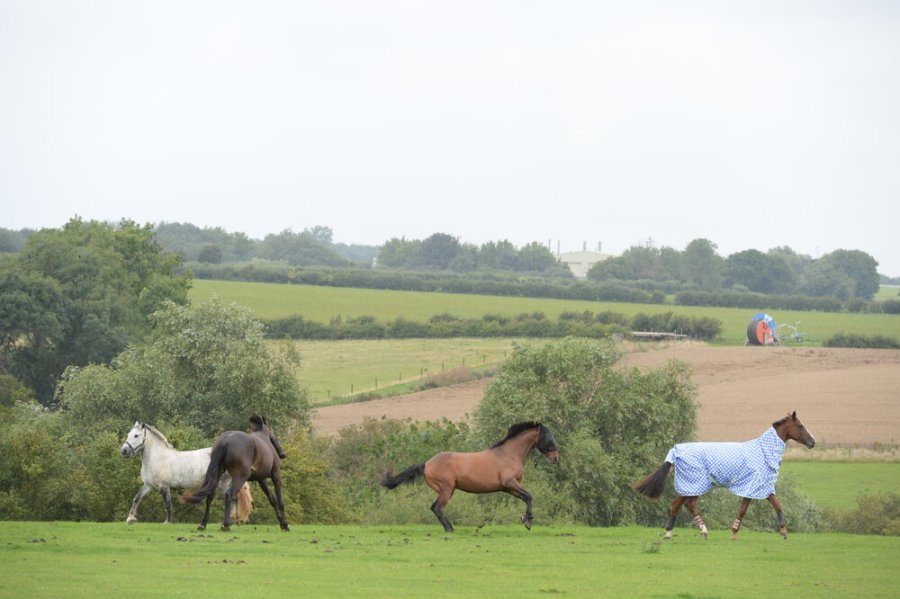Horses can make a number of different sounds to communicate different things – they can whinny, nicker, squeal, blow, snort, grunt and groan. But just what do these sounds mean? Animal behaviourist Jenni Nellist explains.
What’s in a whinny?
Whinnies are contact calls heard on separation and reunion. They’re the longest and loudest noise a horse makes because they need to be heard over long distances.
Horses distressed by separation make drawn-out, higher pitched whinnies. When they regain contact with each other, whinnies are shorter and deeper in pitch.
Nickers in a twist
Nickers are low-pitched greetings between a mare and her foal, and also between stallions and mares during courtship.
Horses also nicker gently to their people in anticipation of something they like and want, such as food, and some will nicker when their people arrive at the yard – usually because they associate ‘their person’ with something good about to happen. It’s a beautiful sound for us to hear.
Fighting talk
Squeals are used in displays of fighting capability, particularly in stallions. The stallion most capable of winning has a squeal that is higher pitched and outlasts his challengers.
This can escalate to screaming, allowing stallions to work out fighting potential before actually engaging further.
Mares and geldings also squeal – and for similar reasons. Squeals often occur when unfamiliar horses meet, or when one violates the space of another, especially when there’s an important resource at stake, such as food.
Breathe it out
Much like humans, horses sigh as a means of releasing tension. Rather than a way to calm themselves down, a sigh is more a sign that the tension has disappeared or is disappearing – for example, upon calming down after a canter on a good hack out, or receiving a nice brush from their human.
Groaning is heard most often when horses are lying down but are uncomfortable or, alternatively, when they’re on their way to lying down for a nap or roll.
Blows are alarm signals, heard most frequently when horses are startled.
Don’t miss the latest issue of Your Horse Magazine, jam-packed with training and veterinary advice, horse-care tips and the latest equestrian products available on shop shelves, on sale now.









